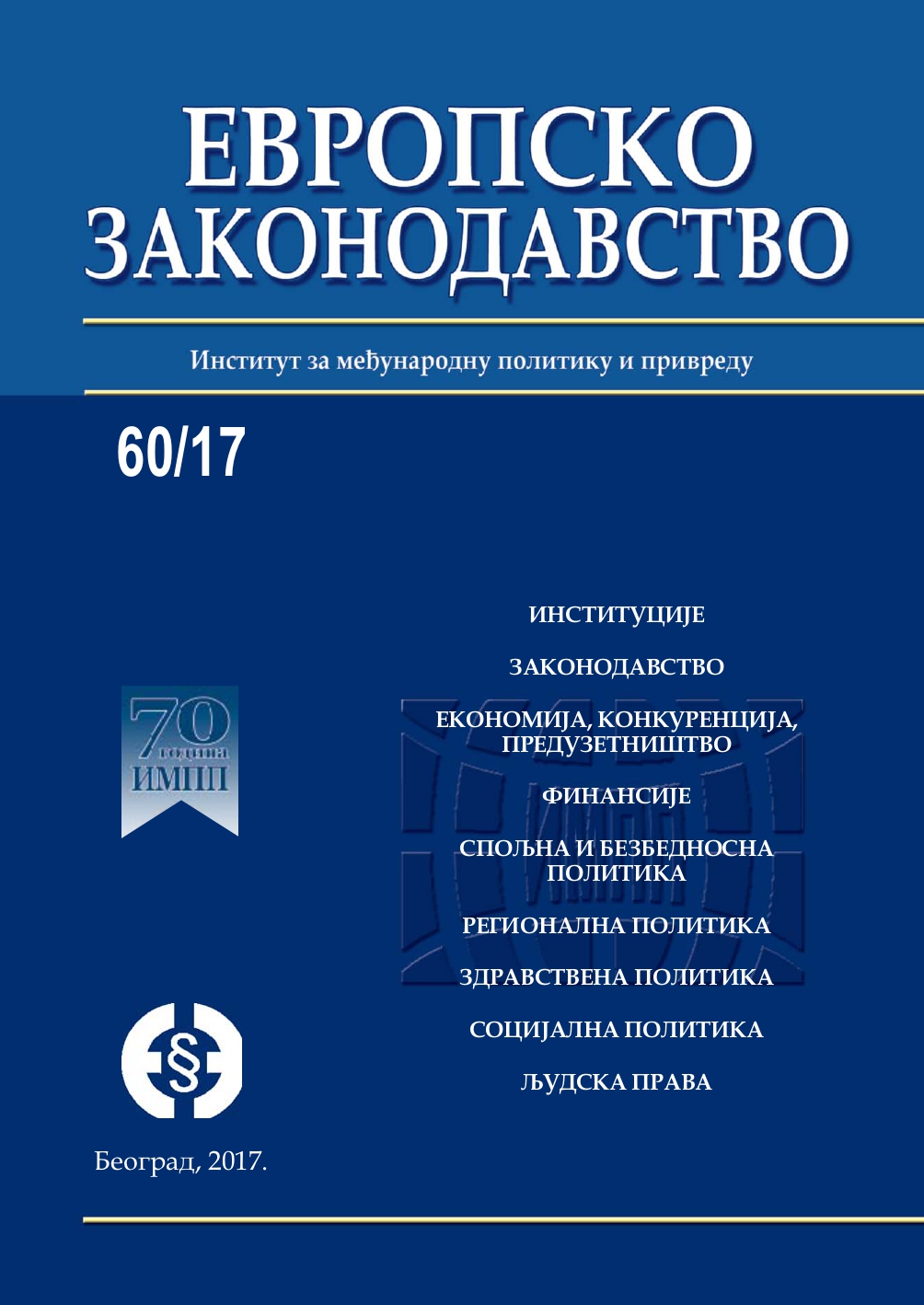Јавно-приватно партнерство и концесије у процесу придруживања Европској унији
Public-private partnership and concessions in the process of joining the European Union
Author(s): Jugoslava VojnovićSubject(s): EU-Legislation, Commercial Law
Published by: Институт за међународну политику и привреду
Keywords: public-private partnership;concessions;stabilization and association process
Summary/Abstract: In this paper, the author is studying the role of regulation and significance of public private partnership (PPP) institution and concessions in the association process of the Western Balkan to the European Union, specifically in regard to the example of the Republic of Serbia. Namely, the hypothesis of this paper is that public-private partnership and concessions represent a very important part of society, the clear regulation of which is the basis of every regulated society, playing a particularly important role in the stabilization and association process. The paper consists of three parts. In the first part, the author is studying the stabilization and association process, its definition and history of the subject. In the second part, the author is studying the definition of public-private partnership and concessions in general and in the Republic of Serbia as well, being an example of a country currently in the process of stabilization and association. In the third part of the paper, the author is establishing the connection between the two concepts, the stabilization and association process and public-private partnership and concessions, studying the role of regulation and implementation of public-private partnership and concessions in the stabilization and association process. In conclusion, it is pointed out that public-private partnership and concessions represent a very significant part of the stabilization and association process, but certainly in the wider sense as well. Namely, an unregulated institution that is the subject of this paper can possibly have very wide and far-reaching consequences within a particular state, as well as in a wider community such as the European Union. Furthermore, in conclusion, the author is of the opinion that unregulated PPP, or one that is regulated, although the regulations are not implemented or partially and selectively implemented, could influence several areas of society such as: transparent public administration, economy of public administration, corruption, controlled aids granted by States, non-transparent privatizations or public procurement, which makes regulation and implementation of PPP regulations essential in the stabilization and association process.
Journal: Европско законодавство
- Issue Year: 2017
- Issue No: 60
- Page Range: 86-105
- Page Count: 20
- Language: Serbian

